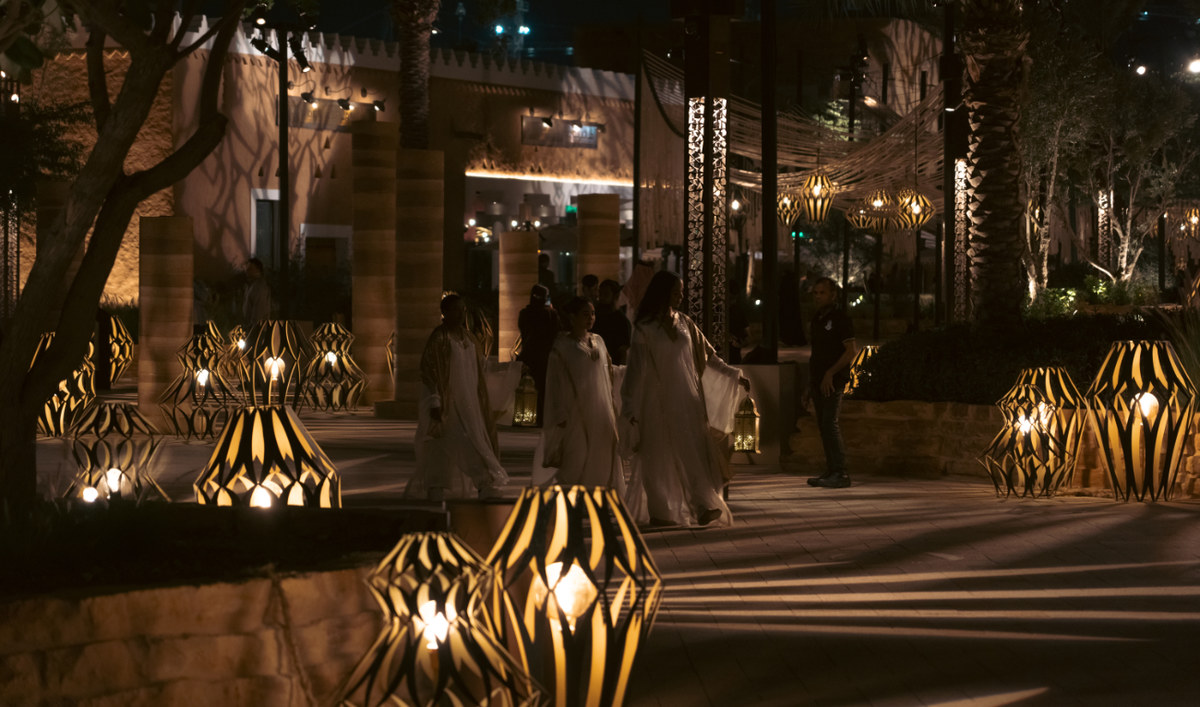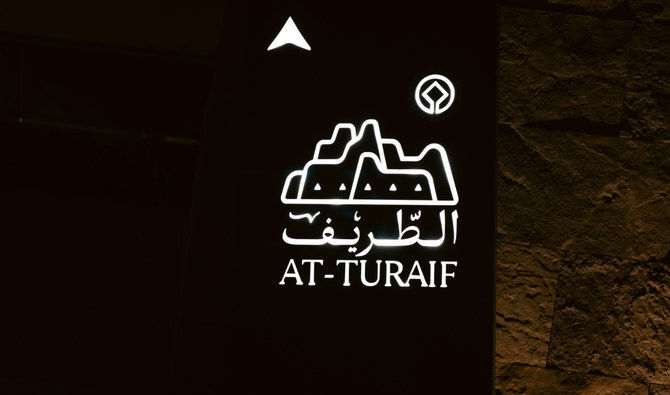RIYADH: Bujairi Terrace and At-Turaif in Diriyah is offering visitors a curated Michelin-star gastronomic experience and a variety of interactive activities and events during Ramadan.
Diriyah opened its premium dining district Bujairi Terrace on Dec. 4 last year with exceptional views of the recently-renovated UNESCO World Heritage Site At-Turaif.
Bujairi Terrace is inspired by Najdi architecture to evoke images of the past. Guests are pampered with over 20 restaurants, including four Michelin-star restaurants — Chez Bruno, Tatel, Hakkasan and Long Chim — in addition to other fine dining in Saudi and international cuisine.
Shamma Alsubaie, a retired history teacher, told Arab News that Bujairi Terrace has great significance in the region. “Bujairi is considered one of the most beautiful places in Diriyah, and one of the fastest growing and splendid areas in Riyadh. It is the magnificence of the design of the place and its historical importance,” said Alsubaie.
She added: “If I would describe Bujairi in a sentence, I would say it is the Jewel of Wadi Hanifa.”
Hessah Abdulaziz, a former kindergarten teacher, said: “The first time I went to Bujairi was back in 2011. I recently visited Bujairi and I saw a great difference. It is one of my favorite places in Diriyah in Riyadh.”
“The presence of international restaurants and cafes in a historical place with stunning views of distinctive heritage sites is not something you can miss, and I have been going over there almost every month,” said Abdulaziz.
Maiz is a contemporary Saudi restaurant inspired by food from 13 regions of the Kingdom. Their Ramadan set menu offers dishes with authentic Saudi flavors like lamb with rice and jareesh.
Noor Alawami, a senior marketing specialist, visited Bujairi Terrace prior to Ramadan and dined in Maiz with some friends. “I loved the way the restaurants are laid out and the way the place is set up. The traditional vibe of the place and children running and playing, as well as the great hospitality of the staff there. The place is walkable and parking is very easy. I tried Maiz, which has authentic Saudi food and really liked it.”
“I want to go to Al-Turaif district next time I visit. I would go after sundown or at night because there is a section with beautiful light fixtures that would look good at night.”

Bujairi Terrace is inspired by Najdi architecture to evoke images of the past. (AN photo by Abdulrahman Bin Shalhoub)
After indulging in their cuisine of choice, guests can enjoy various activities ranging from themed storytelling, poetry readings, workshops and shopping. The Diriyah Coffee workshop will teach guests how to recreate the traditional Al-Arid coffee and dates and hospitality methods.
One of the events, Discover the Ramadan Sky, will have an educational and spiritual program where visitors can learn about the planetary movements and their association with the times of iftar and imsak during Ramadan. Another event, titled Recreate Your Family Tree, also offers stories of kinship and family connections.
Visitors who arrive before sundown will be invited to gather as a community to break their fast with coffee, water and dates at the At-Turaif Iftar Coffee and Date Offering. Taraweeh prayers are also being held at At-Turaif Mosque.
One of the events, Hidden Heritage Trail of At-Turaif, especially created for Ramadan 2023, will give visitors the chance to discover lesser-known places within the World Heritage Site.
The second installment of the At-Turaif Retrospective (Descendants), a docuseries of short films, is an immersive experience that dives into the history, heritage and culture of the site and its impact on the Kingdom.
Bujairi Terrace and At-Turaif’s Ramadan activities will run daily from 4 p.m. to 3 a.m. with the last entry allowed at 2 a.m. Tickets can be purchased at Bujairi Terrace restaurant.































